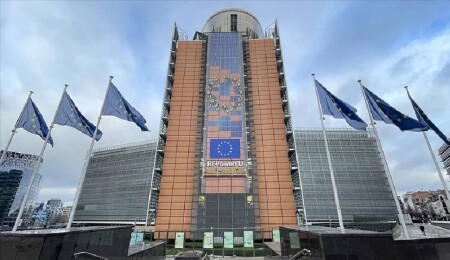EU updates rules on residence and work permits to address labor shortage

The European Union (EU) member countries have agreed to update regulations on residence and work permits in response to an increasing labor shortage.

The EU Council, made up of member states, has reached an agreement on the updated version of laws related to legal migration to the EU labor market. The update is part of the package by the EU to "attract the needed skills to the EU". The EU aims to increase regular migration while also bringing individuals to work in needed areas and professions in the labor market.
According to a statement by the Council, the updated version of the regulation, known as a "single permit" covering both residence and work permits, will simplify the application procedure. The EU expects this to increase the number of "talents" that will be employed from outside the EU.
Under the new regulation, citizens of non-EU member countries will have more rights when employed within the Union and receive equal treatment to EU citizens in terms of employment rights. This is expected to help eliminate labor exploitation by employers within the EU.
Swedish Migration Minister Maria Malmer Stenergard, who holds the presidency of the EU Council, made a statement regarding the issue, saying "Labor shortages are holding our companies back, slowing their growth and hinder renewal. Our companies must be able to more easily employ foreign professionals. A predictable and straightforward application process is of great importance. The single permit we reached agreement on today guarantees that."
The permit, known as the "single permit," regulates the living and working of non-EU citizens within the EU. Each member state determines how many people from outside the Union are granted such permits.
Under the new regulation, a non-EU citizen can apply for the permit both inside or outside the EU. A decision whether the permit will be granted or not must be made within 4 months of the application.
Once issued a "single permit," the permit holder will be able to change their employer by filing notice or making an application to the relevant authorities.
If the permit holder becomes unemployed, they may continue to reside in an EU country for two months within the validity period of the permit.
The EU's current regulation on the "single permit" was adopted in 2011. In April 2022, the EU Commission proposed its update.
According to EU statistics, member countries granted around three million "single permits" in 2019. Of these, 1.2 million were first-time permits, and the others were renewals or permit changes.
The final version of the regulation will be given after discussions between the EU Council and the European Parliament.


Comments
Attention!
Sending all kinds of financial, legal, criminal, administrative responsibility content arising from illegal, threatening, disturbing, insulting and abusive, humiliating, humiliating, vulgar, obscene, immoral, damaging personal rights or similar content. It belongs to the Member / Members.